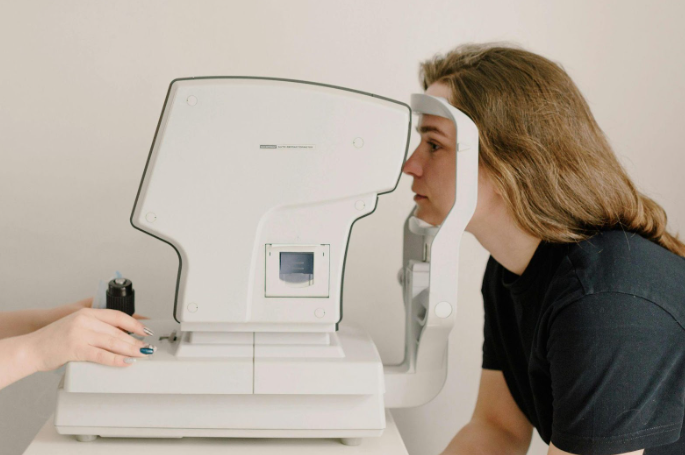What Should I Expect During My Cataract Surgery?
Cataract surgery may be the most common form of surgery performed in the United States, but that doesn’t mean that you know exactly what to expect. As with any surgical procedure, being prepared for what’s going to happen is the best way to alleviate any fears that you may have.
Your surgeon will decide if you’re ready for cataract surgery. The procedure occurs under local anesthesia so you won’t feel any pain. Using a laser or ultrasound device, your surgeon will break up the cataract, remove it, and replace it with a new lens. Make sure to follow all of your doctor’s orders before surgery.
Do I Qualify for Cataract Surgery?
Not everyone who has a cataract will qualify for surgery early on. This is due to the fact that cataracts can take years to develop, allowing for other treatments to be used beforehand. These treatments are much less invasive than surgery and can give you and your healthcare team time to plan your treatment.
Non-surgical treatments for cataracts include:
- A new prescription for contacts or glasses
- Anti-glare glasses or sunglasses
- Brighter lighting to make it easier to see
- Magnifying glasses to help see small print and finer detail
Keep in mind that these treatments won’t reverse the effects of your cataract. Instead, they prolong treatment and allow the cataract to mature. As it matures, the cataract will develop to the point where a new prescription, less glare, better lighting, or seeing more closely will no longer help.
It’s at this point that you will likely qualify for cataract surgery. Once fully matured, cataracts can interfere with daily tasks that used to be easy, such as reading small print. Tasks like driving at night can also become much more difficult, making surgery all the more necessary.
What Happens During Cataract Surgery?
The purpose of cataract surgery is to remove your clouded lens from your eye and replace it with a new one, known as an intraocular lens . The new lens gives your eye a newly unobstructed view that’s free of any clouding. It gives you the ability to safely resume daily tasks as well as return to the active lifestyle that you’ve worked hard to cultivate.
You will be awake throughout the procedure. However, you will be given a local anesthetic before surgery which will numb your eye to ensure that you’re relaxed and won’t feel any pain. However, some patients have reported feeling a slight pressure during the operation. Fortunately, this pressure isn’t painful, and not every patient experiences it.
Your surgeon will begin the operation by making a small incision along the side of the cornea. The incision will heal on its own and doesn’t require stitches. Next, the clouded lens is broken up using an ultrasound device. These pieces are gently removed with suction and replaced by the new intraocular lens. Once that’s completed, your surgeon will place a protective shield over your eye to help avoid any complications during the early healing phase.
You won’t have to wear a protective shield over both eyes if both have cataracts. In this situation, your surgeon will stagger the operations by one to three weeks so that the first eye is safely functioning before the next surgery. This also helps you live a normal life with one eye still fully functioning while the other one recovers from surgery.
How to Prepare for Cataract Surgery
While cataract surgery may be the most common surgical procedure performed in the United States, that doesn’t make it any less of a mental burden. It’s important to know that our team of experienced surgeons will be with you every step of the way, from consultation to operation to recovery.
It also helps to know what you can do to ensure the best possible outcome for yourself. Fortunately, there is a simple list of dos and don’ts to put your mind at ease and have full confidence in the procedure.
Dos
- Use all prescribed eye drops as directed
- Pick up your post-surgical eye drops before your surgery
- Wear a comfortable button-up with no undershirt
- Bring a friend or family member who can drive you home
- Notify your doctor of any recent health changes, such as illness or other surgeries
Don’ts
- Don’t use any tobacco products after midnight before surgery
- Avoid eating or drinking anything after midnight if your surgery is before noon
- If your surgery is after noon, only drink clear liquids until 7 a.m. the day of your surgery
- Don’t wear jewelry, makeup, nail polish, hairspray, or any valuables with you
- Don’t take insulin or oral diabetic medicine the morning of surgery
Medications for your heart, seizures, and stomach medications are okay. Just make sure that you wash them down with just a sip of water.
Want to know more about cataract surgery, what it is and how to prepare? Download our ebook, The Complete Guide to Cataract Surgery Guide , to learn everything you need to know about the procedure!
Most patients become eligible for cataract surgery once treatments such as new eyewear prescriptions and magnifying glasses no longer work. The procedure involves breaking up the cataract with a laser or ultrasound device and replacing the lens with a new, intraocular lens. Make sure to follow your surgeon’s instructions to help ensure that your cataract surgery goes as smoothly as possible. Make sure to check out our next blog where we discuss what to expect following your cataract surgery.
Would you like to know more about cataract eye surgery and what to expect? If so, contact us today and schedule a consultation.
Baptist Eye Surgeons is an ophthalmological practice in Knoxville, TN, and Morristown, TN. Give us a call at 865-579-3920 for more information or to schedule an appointment.





